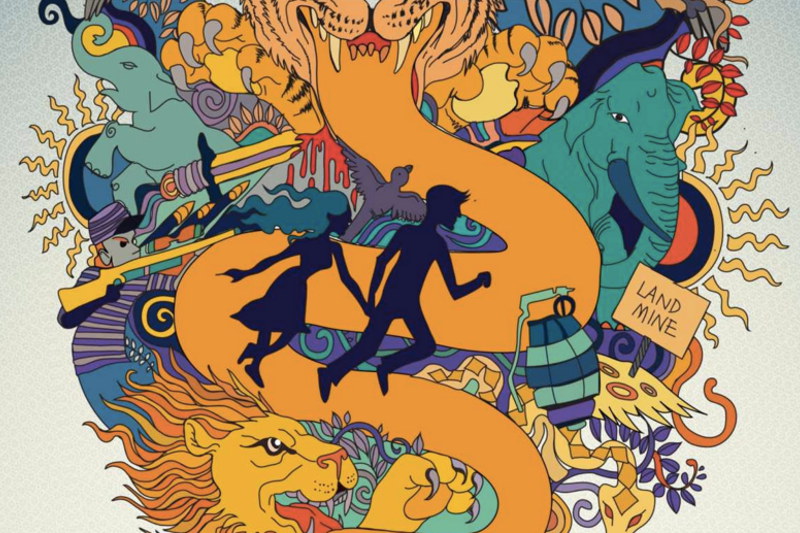Creon’s uncles are Michael Ondaatje, the author of The English Patient, and Christopher Ondaatje, the philanthropist and author. The book Running in the Family is about Creon’s family and what it was like for Michael to come back to Sri Lanka after being away for so many years.
There are many books by both authors around the house and I started to read In the Skin of a Lion. There is a scene in the beginning of the book where a nun falls off a bridge and is caught by a construction worker hanging from the supports. She then gives up her habit and walks away from her life without turning back. It is a life changing experience. That’s how I feel sometimes as I travel thought Asia, like I am falling off a bridge and I get caught by someone at the last minute.
I went to a literary reading for the Gratiaen Prize, an award originally set up using the Booker Prize money that Michael won for The English Patient. Gillian is in charge of the trust (in his name) and responsible for organizing this year’s events. The reading was at the British High Commission and was a very educated affair. Ten writers showed up to read from their work, but no one knew who would get to read until the four semi-finalists were announced. When the announcement was made there was a flurry of activity as other authors got up and left. Of those chosen there were two men and two women.
Sri Lanka has many talented Sinhalese writers, but the Gratiaen prize is for Sinhalese who choose to write in English. I’d also go so far as to say that Sri Lanka is a highly literate country, one of the top in the world. The top 10% of students in high school will go to a Sri Lankan University and have their education paid for. Everyone else must study abroad if they want a university education. So, competition in schools is fierce for this top 10%.
After each author read a sample of their work the audience had the chance to ask questions. One of the predominant and most interesting questions asked was if the authors could express themselves better in English or Sinhala. And, what sort of differences there were in the two languages.
It took a while for them to formulate their answers, which I found very interested and enlightening. The two male readers grew up in London so they could express themselves better in English. One of the women was from Jaffna and had witnessed the horrors of the war, which is what she wrote about. She said it was easier to express herself in Sinhala because it was a very flowery language. The other woman read a nice poem about being a grandmother. She said the same thing about Sinhala.
All authors choose to write in English because of its global reach and personally I found their discourse interesting, especially those of the women; even though their words were in English, the style, language, impression and world view were all Sri Lankan. People in general have a world view that I don’t think can’t entirely be altered by language.

1 comment on “The Gratiaen Prize”Add yours →